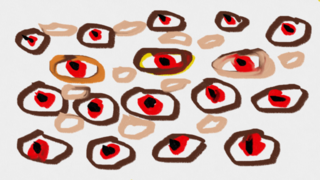Coronavirus Disease 2019
The One Trait That Conspiracy Theorists Have In Common
New research explores the profile of a conspiracy theorist.
Posted November 10, 2020 Reviewed by Abigail Fagan

Stereotypes regarding the “prototypical” conspiracy theorist may be dead wrong, according to a new paper authored by Robert Gonzalez of the University of South Carolina and Elisa Maffioli of the University of Michigan. They find no evidence that conspiracy theorists are any older, poorer, more rural, less educated, or more ethnically different than individuals who are correctly informed.
Instead, the researchers find that people who exhibit high levels of distrust, particularly towards government institutions, are most likely to believe false information.
“We find that demographic and economic characteristics of individuals are poor predictors of whether they are more likely to believe false narratives,” state the researchers. “However, consistent differences arise along a key dimension: conspiracy theorists are significantly more likely to report high levels of general distrust. Specifically, a one standard deviation increase in [distrust] increases the likelihood that an individual believes misinformation by about 14 percentage points.”
This is according to a survey of attitudes on the origin of the 2014-2015 Ebola outbreak in Liberia.
“When the 2014 West Africa Ebola epidemic unfolded, denials, conspiracy theories, and false rumors were common, and disrupted public health interventions,” say the researchers. “Currently, a similar pattern is playing out with the spread of misinformation related to Covid-19.”
The researchers analyzed survey data collected between October 2015 and June 2016 on 2,265 Liberian adults. According to the data, approximately 30% of Liberians endorsed a misguided belief in the origin of the Ebola outbreak. False beliefs tended to be of two forms: (1) that the government was responsible for the outbreak or (2) that God was responsible for the outbreak.
They used a machine-learning algorithm to identify which variables were most predictive of a belief in false information. Interestingly, almost all of the top predictors had to do with the personality trait of trust/distrust.
One question raised by this research is whether the results would be similar in other cultures and regions of the world. The authors hope that future research addresses this question.
Over the course of the two-year epidemic, the scientists found that a small percentage of people, approximately 5-6%, switched from a misinformed belief to an informed one. Interestingly, they found that cellphone coverage was a key factor in increasing the chances of correcting one’s beliefs. They state, “We find that access to cell phone coverage can play a key role in belief-updating: individuals with coverage were 7 percentage points more likely to switch from misinformed to informed by the end of the epidemic.”
This finding is important, especially in light of the ongoing Covid-19 crisis where conspiracy theories pose a real threat to containment measures. “Although cellphone coverage does not necessarily guarantee access to more information,” write the authors, “it does plausibly increase access to more correct information and from a larger number of sources.”
Furthermore, the researchers found that non-governmental organizations may be better at delivering the facts during times of crisis than governments themselves. “According to our main results,” state the researchers, “respondents do not view international organizations such as UNICEF with the same level of distrust as the national government. Therefore, information delivered by a trusted institution — and mostly accessible to mobile users given the distribution method — is likely to lead to belief-updating.”
References
Gonzalez, Robert M and Maffioli, Elisa M., Profile of a Conspiracy Theorist: The Role of Government Trust and Technology on Misinformation during an Epidemic (September 5, 2020).


